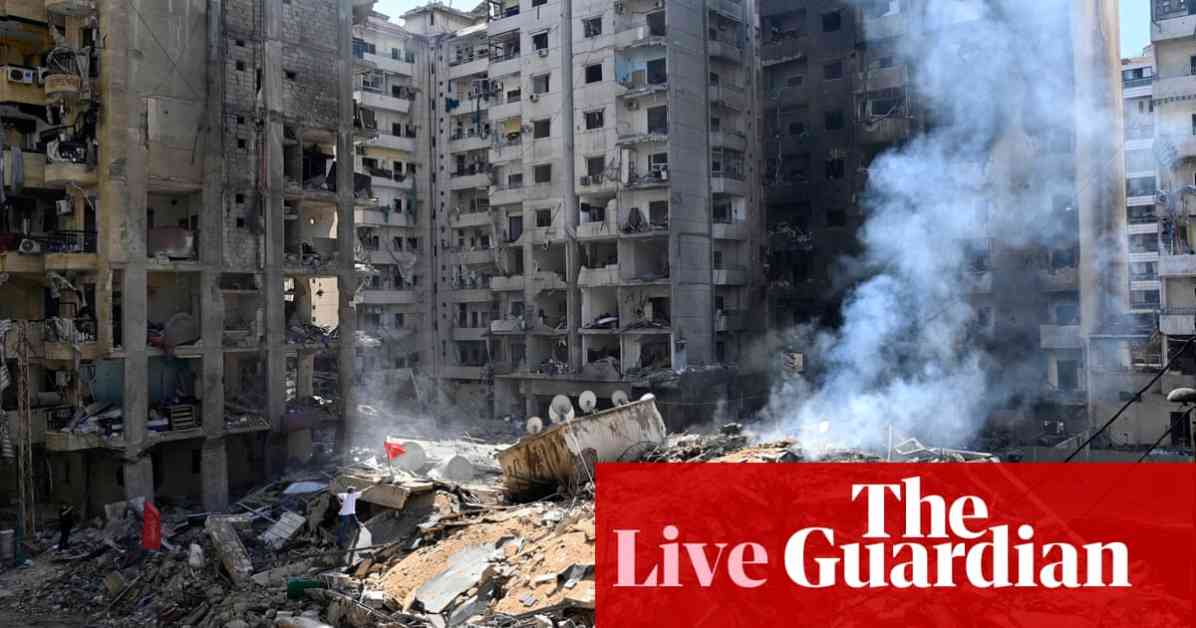The Israel Defense Forces (IDF) have confirmed that they conducted a precise and targeted airstrike in Beirut. There were three huge explosions reported in Beirut’s southern suburb, with footage showing a large plume of smoke over the area. Israeli warships in the Mediterranean Sea are reported to be targeting the Lebanese capital, according to Israeli media.
The strikes have resulted in numerous casualties, with the Lebanese health ministry reporting 46 people killed and 85 wounded in Israeli strikes over the past 24 hours. The total death toll from Israeli strikes in Lebanon over the past two weeks has exceeded 1,000, with many women and children among the victims.
In addition to the airstrikes, reports indicate that Hassan Jaafar al-Qasir, the son-in-law of Hezbollah leader Hassan Nasrallah, was killed in an Israeli raid in Damascus. This incident follows the killing of Nasrallah last week in a massive Israeli strike in Beirut.
Amid the escalating violence, Lebanon is seeking to increase its military presence in the south of the country, where it shares a border with Israel. The Lebanese government aims to enforce a UN Security Council resolution from 2006 that called for the disarmament of all armed groups, including Hezbollah, and the deployment of Lebanese forces to the southern border with Israel.
However, tensions continue to rise as Iran’s supreme leader, Ayatollah Ali Khamenei, reportedly ordered a barrage of about 200 missiles to be fired at Israel in retaliation for recent attacks on Hezbollah leadership. Iran has expressed concerns about the safety of its supreme leader and the ongoing infiltration within Hezbollah and Iran’s establishment.
The situation has led to mistrust within Hezbollah and Iran, making it difficult for Hezbollah to choose a new leader. The assassination of Nasrallah has exacerbated the tensions between Tehran and Hezbollah, with sources indicating that the trust that held the alliance together has disappeared.
In response to the escalating conflict, the UN has condemned Israel’s decision to ban UN Secretary-General António Guterres from entering the country. The UN has described the ban as an attack on its staff and reiterated its commitment to engaging with Israel at various levels.
As the conflict in the Middle East intensifies, the international community remains on edge, hoping for a resolution to the violence that has claimed numerous lives and displaced many families. The situation highlights the ongoing challenges and complexities in the region, underscoring the need for diplomatic efforts to de-escalate tensions and prevent further bloodshed.












